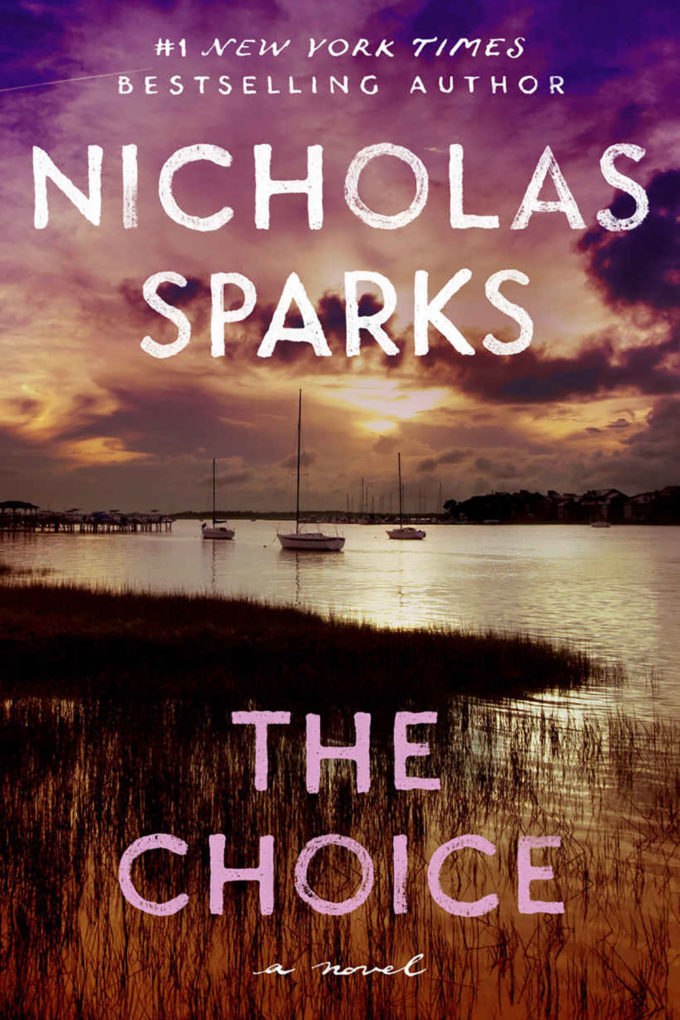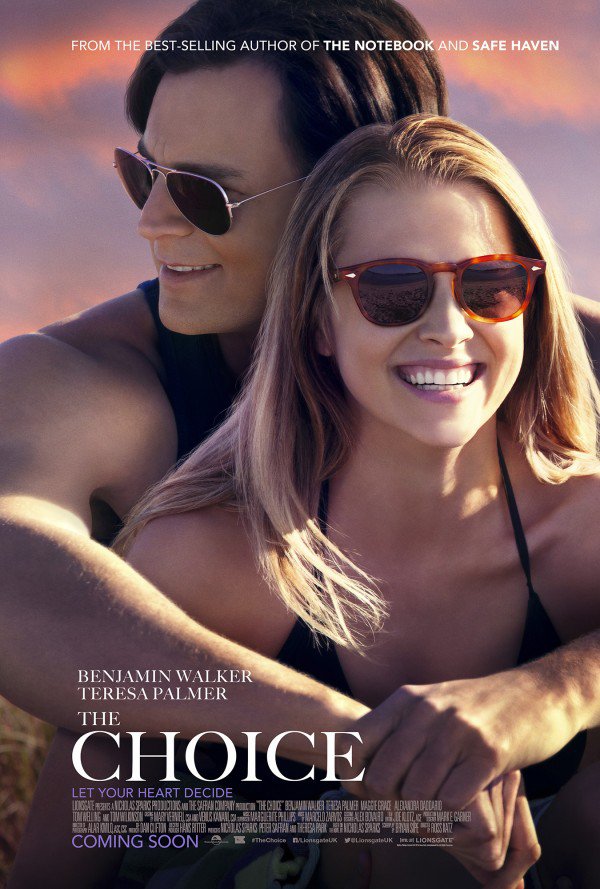Travis Parker has everything a man could want: a good job, loyal friends, even a waterfront home in small-town North Carolina. In full pursuit of the good life—boating, swimming, and regular barbecues with his good-natured buddies—he holds the vague conviction that a serious relationship with a woman would only cramp his style. That is, until Gabby Holland moves in next door. Despite his attempts to be neighborly, the appealing redhead seems to have a chip on her shoulder about him…and the presence of her longtime boyfriend doesn’t help. Despite himself, Travis can’t stop trying to ingratiate himself with his new neighbor, and his persistent efforts lead them both to the doorstep of a journey that neither could have foreseen. Spanning the eventful years of young love, marriage and family, The Choice ultimately confronts us with the most heart wrenching question of all: how far would you go to keep the hope of love alive?

Travis Parker has everything a man could want: a good job, loyal friends, even a waterfront home in small-town North Carolina. In full pursuit of the good life—boating, swimming, and regular barbecues with his good-natured buddies—he holds the vague conviction that a serious relationship with a woman would only cramp his style. That is, until Gabby Holland moves in next door. Despite his attempts to be neighborly, the appealing redhead seems to have a chip on her shoulder about him…and the presence of her longtime boyfriend doesn’t help. Despite himself, Travis can’t stop trying to ingratiate himself with his new neighbor, and his persistent efforts lead them both to the doorstep of a journey that neither could have foreseen. Spanning the eventful years of young love, marriage and family, The Choice ultimately confronts us with the most heart wrenching question of all: how far would you go to keep the hope of love alive?
Inspiration
The Notebook. Millions of people loved the novel. Millions of people loved the film. With Cliffs Notes coming out on the novel in 2009, a case can even be made that it’s become something of a modern classic. Nowadays, I’m fairly certain that when people look back on my career,The Notebook will always be first in the list of work for which I am most known. This doesn’t bother me at all, by the way. I’m proud of that novel for many different reasons, but that doesn’t mean that I fully accept the fact that I’ll never write a novel that becomes even more well-known.
Still, there was something magical about the story, and after finishing Dear John, I set out with the hopes of capturing at least a bit of that magic once more, if only to show that I hadn’t forgotten why people began to read my novels in the first place.
The Choice was the product of those efforts.
Again, as with all my novels, one of the questions I must first answer when attempting to conceive of a story is the “obstacle” that keeps the characters apart. The obstacle creates the tension and drama inherent in the story; in many ways, it’s the glue that holds the entire story together. In The Notebook, the “obstacle” that kept them apart was two-fold; in the early story, it was Allie’s engagement to Lon; in the final section, Alzheimer’s kept Allie from remembering Noah.
With The Choice, I tried to parallel – not copy – those obstacles. In The Choice, I decided to give Gabby a serious boyfriend, one whom she thought she would marry; in the final section, Gabby was in a coma, and Travis wasn’t sure whether she would ever awaken.
Parallels. Not copying. Close enough to feel superficially familiar, but different enough to feel completely unique. And though I simply laid out my thoughts behind the novel in just a few preceding sentences, it took months to actually come up with the central thrust of the story. It’s always like that though: the idea, once expressed, seems obvious. But conceiving the idea in the first place is often a long journey of frustration.
Once I had those elements, however, I wanted to make the story as original as possible. Travis, a character inspired by my brother (before he got married), was nothing at all like Noah Calhoun. And Gabby, inspired by a former assistant, was nothing like Allie. Nor did Gabby and Travis have a “prior history” together (whereas Noah and Allie had fallen in love as teenagers). The Choice was a contemporary story; The Notebook was more of a period piece. The Choice was written completely in third-person; The Notebook was written in both first and third person. Again, all these decisions were made consciously, so the story would feel fresh and new, while still inspiring the same sort of emotion prevalent in The Notebook.
Beaufort, NC
Located in North Carolina’s Inner Banks, Beaufort (pronounced “BO-furt,” to distinguish it from a South Carolina town of the same name) is a seaport town rich in maritime history. Established in 1709 as a trade and customs port, Beaufort is the third oldest town in the state and is steeped in colonial charm. Beaufort was also frequented by the infamous pirate, Blackbeard, and his shipwreck, The Queen Anne’s Revenge, is a major attraction on exhibit in the town. Nowadays, Beaufort is known as a summer retreat, where visitors and resident alike can enjoy the shopping and dining on the waterfront district, or take ferries to nearby Cape Lookout, Shackleford Banks, or Carrot Island, where wild horses roam free. Quiet and quaint, historic Beaufort provides the ideal setting for A Walk to Remember, and The Choice.
The Choice tells the story of Travis Shaw and Gabby Holland, who meet first as neighbors in a small coastal town and end up pursuing a relationship that neither could have foreseen. Spanning a decade and tracing the evolution of a love affair that is ultimately tested by life's most defining events, this story features a memorable ensemble of friends and family in Sparks' beloved North Carolina setting, culminating in the question that every couple must ask themselves: how far would you go to keep the hope of love alive?
Visit the official movie website for more info.

- Director: Ross Katz
- Screenplay: Bryan Sipe
- Cast: Benjamin Walker, Teresa Palmer, Tom Wilkinson, Maggie Grace, Tom Welling
- Run Time: 111 minutes
The Choice tells the story of Travis Shaw and Gabby Holland, who meet first as neighbors in a small coastal town and end up pursuing a relationship that neither could have foreseen. Spanning a decade and tracing the evolution of a love affair that is ultimately tested by life's most defining events, this story features a memorable ensemble of friends and family in Sparks' beloved North Carolina setting, culminating in the question that every couple must ask themselves: how far would you go to keep the hope of love alive?
Visit the official movie website for more info.








